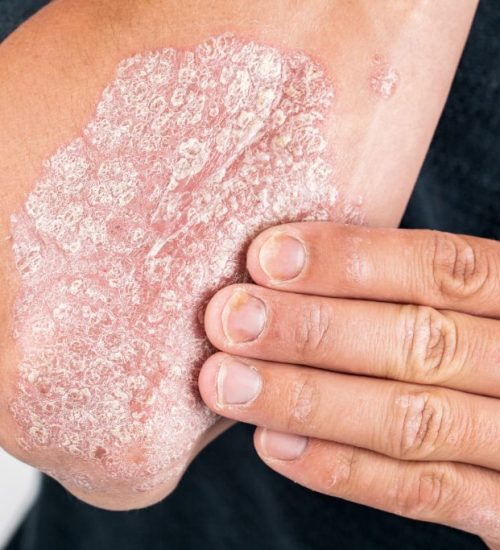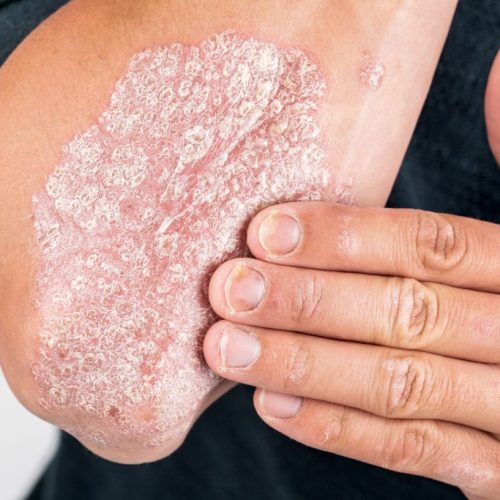- (318) 933-DERM (3376)
- Info@Cenladerm.com
- Monday - Thursday 8:00AM - 5:00PM - Friday 8:00AM - 01:00PM
- (318) 933-DERM (3376)
- Info@Cenladerm.com
-
Monday - Thursday 8:00AM - 5:00PM
Friday 8:00AM - 01:00PM

Psoriasis is chronic skin condition in which the body’s immune system mistakenly sends signals to your skin to keep making extra skin cells. This overproduction of skin cells leads to the thick, scaly red spots, or plaques, on the skin. Common areas for psoriasis plaques on the skin include the scalp, elbows, and the knees.
Psoriasis is different for each person. Sometimes it develops slowly and only in certain body areas. For others, psoriasis happens rather quickly and spreads to multiple body locations seemingly at once.

Psoriasis is chronic skin condition in which the body’s immune system mistakenly sends signals to your skin to keep making extra skin cells. This overproduction of skin cells leads to the thick, scaly red spots, or plaques, on the skin. Common areas for psoriasis plaques on the skin include the scalp, elbows, and the knees.
Psoriasis is different for each person. Sometimes it develops slowly and only in certain body areas. For others, psoriasis happens rather quickly and spreads to multiple body locations seemingly at once.
More than 8 million Americans have psoriasis. About 2% of the population will develop psoriasis during their lifetime.
No, psoriasis is not contagious.
Psoriasis can cause joint pain, swollen fingers, and joint stiffness, called psoriatic arthritis. About 1 out of every 3 psoriasis patients will develop psoriatic arthritis. Psoriasis is also linked with comorbidities such as diabetes, heart disease, and depression.
Stress, certain medications, and specific infections are the most common triggers for psoriasis.
Psoriasis is a “clinical diagnosis.” Therefore, the trained eye of a board-certified dermatologist or dermatology trained nurse practitioner is sufficient to diagnose psoriasis. Dr. Haseltine, Dr. Soine, and Dr. Holcomb are all board certified dermatologists and they have extensive experience diagnosing and treating psoriasis.
A biologic is a newer class of medicines that work by targeting and lowering the overactive parts of the immune system to decrease inflammation. Although we call these “newer” medications – some biologics have been FDA approved for over 20 years! Biologics are generally given as infrequent shots, which can be done at home or at your doctor’s office. Talk to your dermatology provider about which biologic medication may be right for you. Dr. Haseltine has extensive training and experience with using biologic therapy for psoriasis. Cenla Dermatology is part of a national psoriasis registry for all biologic therapy, which studies effectiveness and safety of biologic therapies.
Yes, biologic medicines are safe to treat psoriasis. Some of these medicines have 20-year safety data – meaning that they have been FDA approved for over 20 years and we know that long-term side effects are very minimal to none. The newer biologic medications are specifically targeted in the skin, and they have very few side effects.
Copyright © 2024 Cenla Dermatology and Mohs Surgery. All Rights Reserved.